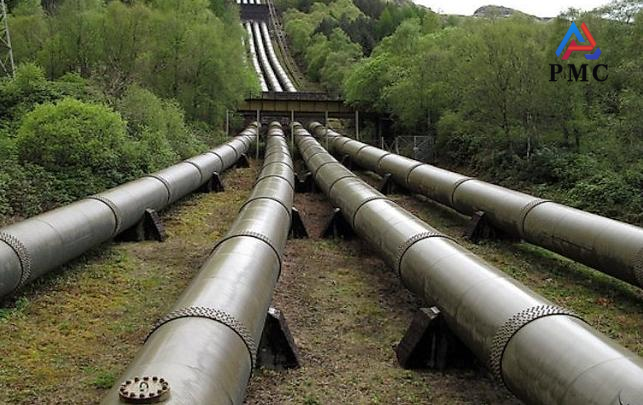
Advantages of Seamless Pipes in Pipeline Transportation
What is pipeline transportation?
Pipeline transportation is a mode of transportation that uses pipelines as a means of transportation and is driven by a certain pressure difference to transport fluid goods such as gas, liquid or slurry over long distances.
The core of this technology is to use a closed pipeline system and rely on pumps, compressors and other equipment to provide power to make the goods flow in a directional manner in the pipeline, thereby achieving continuous transportation from the production site, storage point to the place of use.
Common transport objects include oil, natural gas, tap water, industrial waste water, mud, etc. It has the characteristics of strong continuity, large transportation volume, small footprint, low energy consumption, and little impact on the natural environment. It is an indispensable and important part of the modern logistics system.
Commonly used steel pipes in pipeline transportation
In pipeline transportation, there are two main types of steel pipes, seamless steel pipes and welded steel pipes. The two are suitable for different scenarios due to their performance differences:
Seamless steel pipe: Made by hot rolling or cold drawing, without welds, strong integrity, excellent pressure resistance and explosion resistance, able to withstand high pressure (usually up to 10MPa or more) and complex working conditions. Widely used in the transportation of high-pressure fluids such as oil, natural gas, and high-pressure steam, especially suitable for long-distance, high-risk trunk pipelines, such as cross-regional gas pipelines.
Welded steel pipe: Made of steel plate curled and welded, it has a low cost and is divided into straight welded pipe and spiral welded pipe. Straight welded pipe is suitable for short-distance transportation of low-pressure fluids (such as tap water and low-pressure gas); spiral welded pipe has more uniform weld stress and can be used for medium- and low-pressure, large-diameter long-distance pipelines, such as urban water supply trunk lines and low-pressure oil pipelines.

Advantages of Seamless Pipes in Pipeline Transportation
1. Safety and stability of seamless pipes
The name of the seamless pipe shows its biggest feature - no welds. This seemingly simple "seamless" actually contains huge advantages. The seamless pipe without welds has a more uniform overall structure, and there are no weak links caused by weld defects. It has strong integrity and excellent pressure resistance. In pipeline transportation, especially for media such as oil and natural gas that need to be transported under high pressure, the compressive properties of seamless pipes are particularly important.
2. Corrosion resistant, long life
In many pipeline transportation scenarios, pipelines need to face various complex chemical and physical environments, and corrosion resistance becomes a key factor. Seamless pipes also perform well in this regard. Seamless pipes, with their good corrosion resistance, can operate stably in these highly corrosive media, greatly extending the service life of the pipelines and reducing the cost and time of maintenance and replacement of pipelines.
3. Economical and efficient
Seamless pipe is also an economical cross-section steel. Compared with solid steel, it is lighter in weight when the bending and torsional strength are the same. This feature gives it a significant economic advantage in pipeline transportation. In long-distance pipeline laying projects, the use of seamless pipes can greatly reduce material costs, while reducing the burden during transportation and installation, and reducing transportation costs.
Compared with other heavier pipe materials, the use of seamless pipes can not only reduce the use of steel and reduce procurement costs, but also reduce energy consumption and transportation costs during transportation due to its light weight. Moreover, the hollow structure of seamless pipes enables it to transport more fluids while ensuring strength, improving transportation efficiency and further reflecting its economic efficiency.
4. Wide application and unlimited prospects
Seamless pipes have shown great value in the field of pipeline transportation due to their safety, stability, corrosion resistance, economic efficiency and many other advantages. Whether in the key links of energy transportation, in the basic guarantee of industrial production, or in the construction of urban infrastructure, seamless pipes play an irreplaceable role.
As the requirements of various industries for pipeline transportation continue to increase, the application prospects of seamless pipes will be broader. In the future development, seamless pipes are expected to further improve performance and reduce costs driven by technological innovation, bringing more surprises and changes to the pipeline transportation industry.
Read more: Application of Seamless Steel Pipes in High-pressure Pipelines
- 【Prev】 : How does Pipeline Transport Work?
- 【Next】 : ASTM A53 Pipe Specifications


